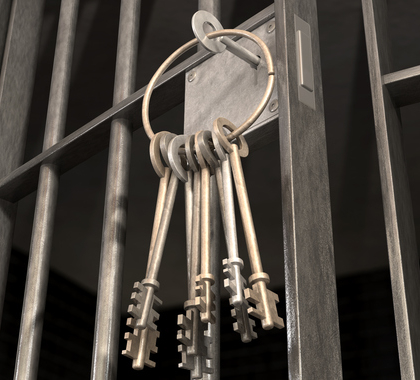Utah Gov. Gary Herbert has signed into law a measure passed unanimously by both houses of the state legislature which will automatically expunge criminal records for low-level, nonviolent offenses.
The law will help those who have been convicted of misdemeanors turn their lives around, says Derek Monson, vice president of policy at the Sutherland Institute in Utah.
“Utah’s clean slate legislation, H.B. 431, offers nonviolent, reformed criminal offenders the opportunity to become productive members of society by automating the expungement of their criminal records if they have served justice by fulfilling their criminal sentence and spending multiple years free of crime after getting out of jail,” said Monson.
Past Mistakes Haunt Offenders
Many people have criminal records that create serious challenges for them, says Molly Davis, a policy analyst at the Libertas Institute, a Utah reform group.
“One in three American adults are living with a criminal record that inhibits their ability to find employment and housing,” said Davis. “By passing this law, we’re giving them a second chance at living life with a clean slate, free from past mistakes.”
A criminal record is a serious obstacle to personal improvement, Monson says.
“Those most impacted will be people who made criminal mistakes in the past but have turned their lives around,” said Monson. “[They] are seeking to live crime-free, but face unnecessary barriers to the basics of a productive life … due to their criminal records.”
Avoids Court Proceedings
Expunging criminal records normally requires lengthy court proceedings. A person must wait years before becoming eligible, and then has to pay fees and submit an application to a court for consideration.
The Utah law also wipes out records in cases that resulted in an acquittal or were dismissed with prejudice. The law does not include felonies, DUIs, or violent misdemeanors, such as domestic violence or sexual battery.
Herbert signed H.B. 431 into law on March 28. The law took effect on May 1, 2020.
Broader ‘Clean Slate Initiative’
Pennsylvania also has an automatic expungement process, and similar measures are under consideration in other states, says Davis.
“We’re excited that Utah is leading the way as the second state in the nation to pass an automatic expungement law,” said Davis.
The new law is part of a broader series of changes in criminal law, says Monson.
“Utah’s clean slate initiative legislation comes on the heels of successful passage and implementation of reforms to Utah’s adult and juvenile criminal justice systems,” said Monson.
Jake Grant ([email protected]) writes from Alexandria, Virginia.



